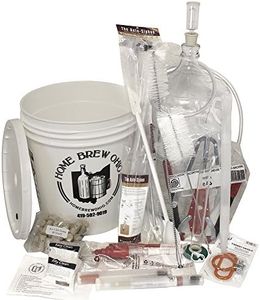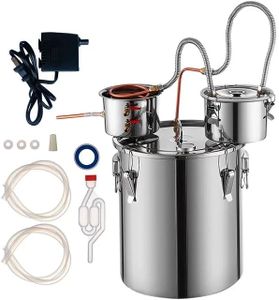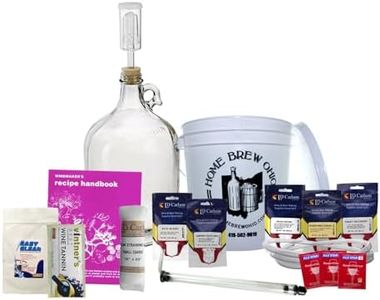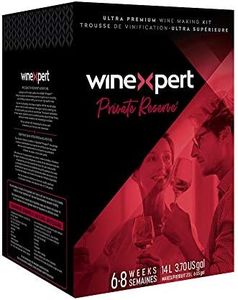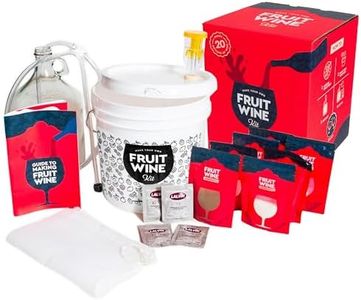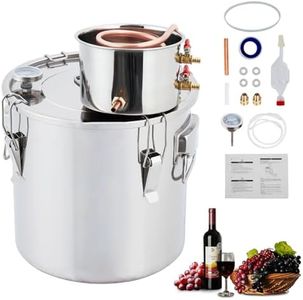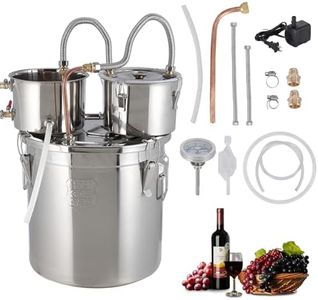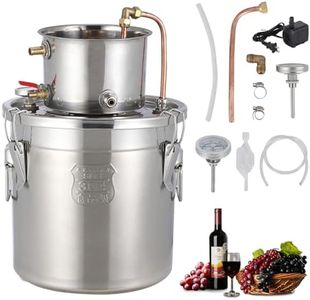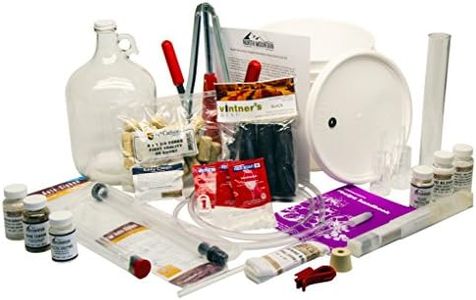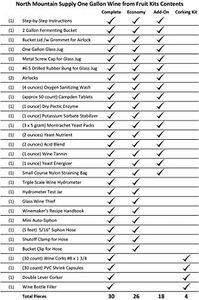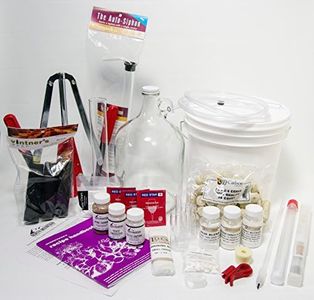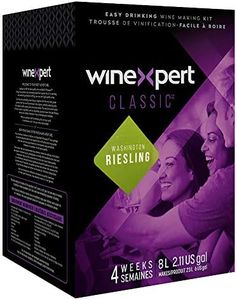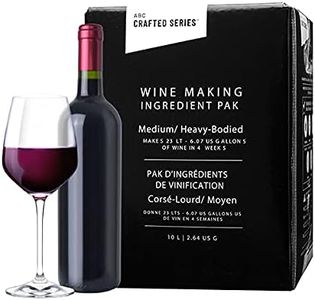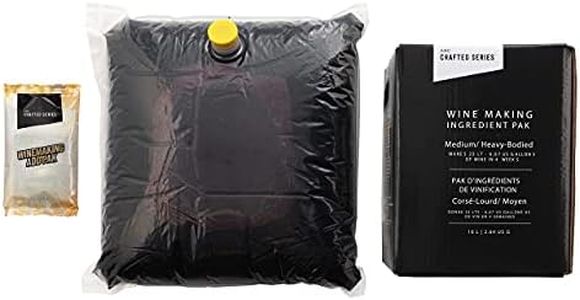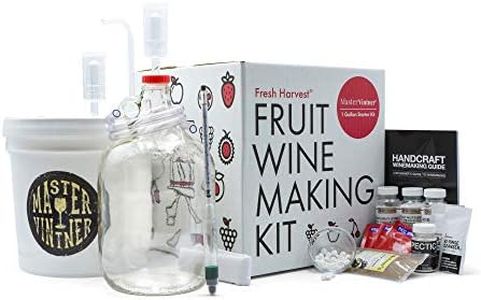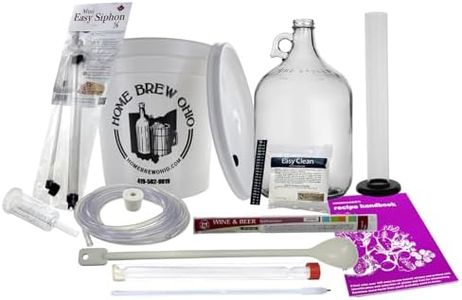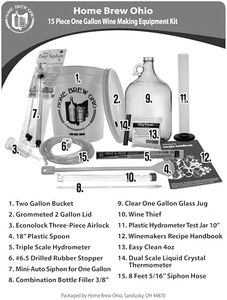10 Best Wine Making Starter Kits 2025 in the United States
Wild Grapes Premium DIY Wine Making Kits - Italian Pinot Grigio - Makes Up to 30 x 750mL Bottles, 6 Gallons of Wine
The Wild Grapes Premium DIY Wine Making Kit is designed for those who want to create their own Pinot Grigio style wine at home. This kit stands out for its quality, with premium ingredients that promise a great-tasting end product. The kit is user-friendly, making it a good choice even for beginners. The process is straightforward: follow the included instructions, and in about four weeks, you’ll have up to 30 bottles of wine ready to enjoy.
Most important from
222 reviews
Ultimate Wine Making Equipment Starter Kit with 6 Gallon Glass Carboy
The Ultimate Wine Making Equipment Starter Kit with a 6 Gallon Glass Carboy is an excellent option for those looking to start their wine-making journey. It includes a comprehensive set of tools and ingredients, making it a great starting point for beginners. One of the main strengths is its large batch size, allowing you to make 6 gallons of wine in one go, which is ideal for those looking to produce wine in significant quantities.
Most important from
90 reviews
Top 10 Best Wine Making Starter Kits 2025 in the United States
Wild Grapes Premium DIY Wine Making Kits - Italian Pinot Grigio - Makes Up to 30 x 750mL Bottles, 6 Gallons of Wine
Wild Grapes Premium DIY Wine Making Kits - Italian Pinot Grigio - Makes Up to 30 x 750mL Bottles, 6 Gallons of Wine
Ultimate Wine Making Equipment Starter Kit with 6 Gallon Glass Carboy
Ultimate Wine Making Equipment Starter Kit with 6 Gallon Glass Carboy
Winexpert Private Reserve Bordeaux Blend Red Wine Making Kit
Winexpert Private Reserve Bordeaux Blend Red Wine Making Kit
Craft A Brew - Fruit Wine Making Kit - Easy for Beginners - At Home Wine Making Kit - Includes Ingredients & Reusable Equipment - Use Any Fresh, Frozen or Fruit Juice - Makes Up to 20 1-gallon Batches
Craft A Brew - Fruit Wine Making Kit - Easy for Beginners - At Home Wine Making Kit - Includes Ingredients & Reusable Equipment - Use Any Fresh, Frozen or Fruit Juice - Makes Up to 20 1-gallon Batches
Classic Washington Riesling Wine Ingredient Kit
Classic Washington Riesling Wine Ingredient Kit
ABC Cork Co Wine Making Kit | 6 Gallon Wine Kit | Premium Ingredients for DIY Wine Making, Makes 30 Bottles of Wine (Washington State Merlot, Medium/Heavy-Bodied)
ABC Cork Co Wine Making Kit | 6 Gallon Wine Kit | Premium Ingredients for DIY Wine Making, Makes 30 Bottles of Wine (Washington State Merlot, Medium/Heavy-Bodied)
Our technology thoroughly searches through the online shopping world, reviewing hundreds of sites. We then process and analyze this information, updating in real-time to bring you the latest top-rated products. This way, you always get the best and most current options available.


